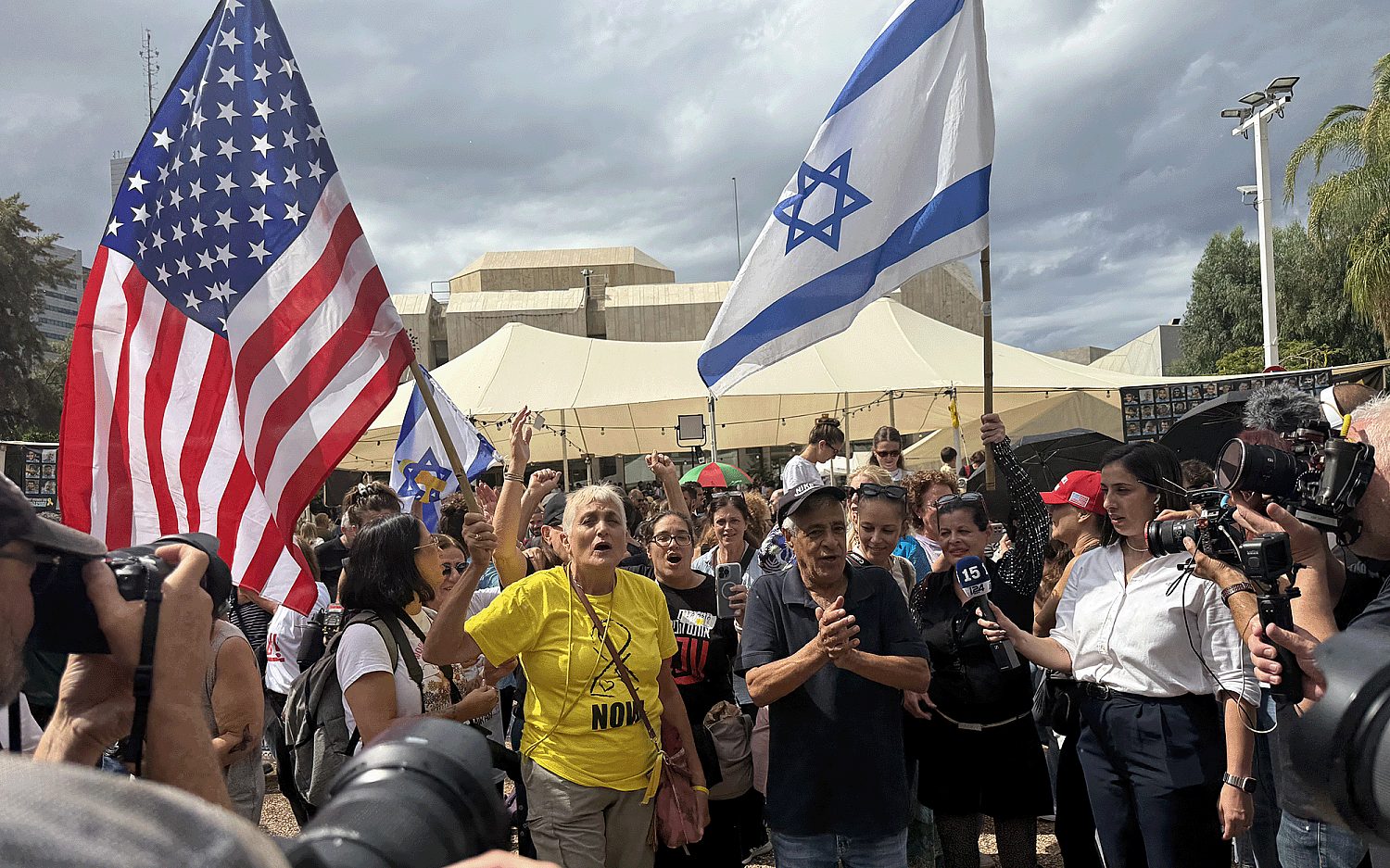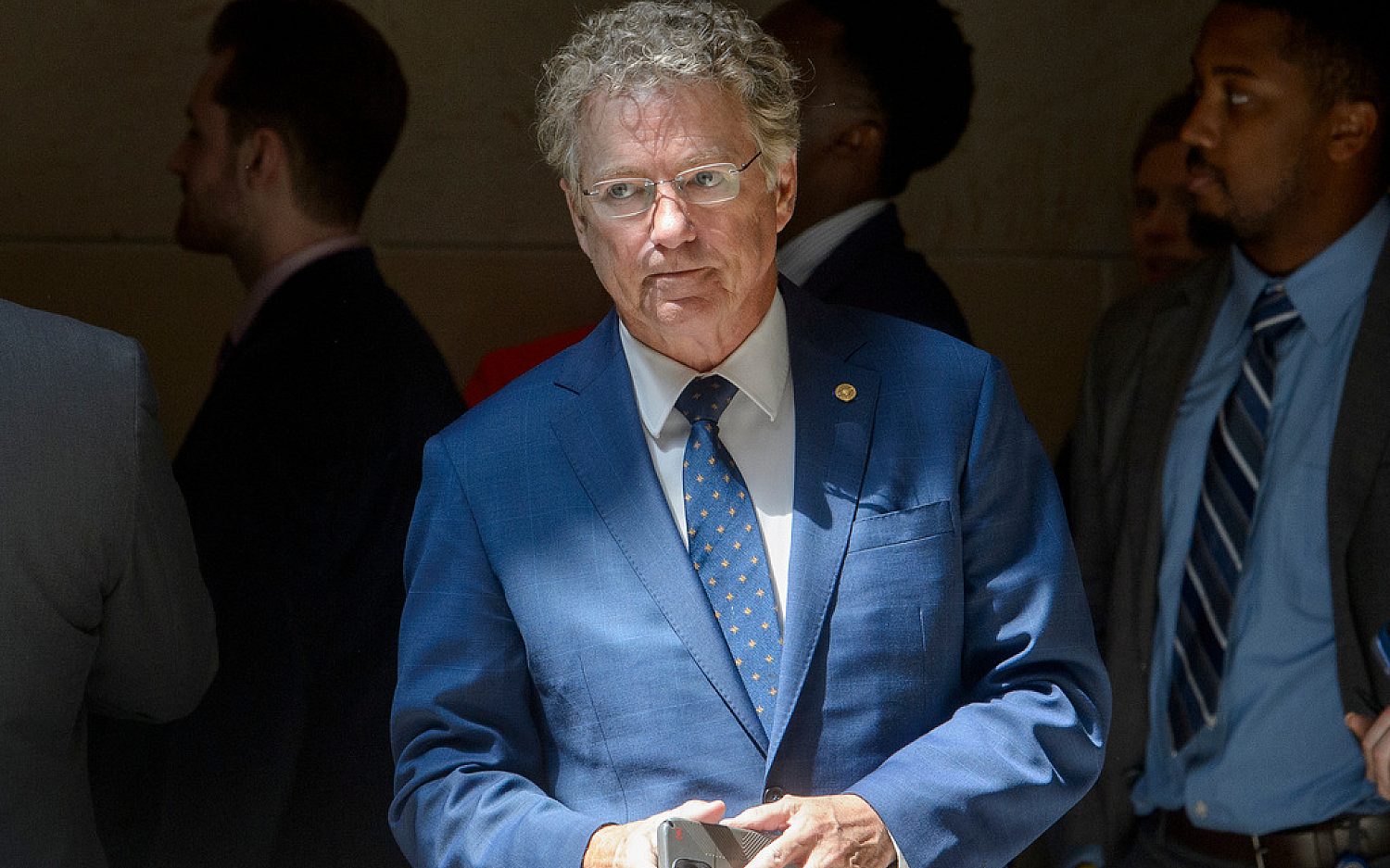Iran, nuclear negotiations, and U.S. prisoners
Families of imprisoned Americans urge U.S. government to make their loved ones a priority
WASHINGTON—Relatives of Americans held in Iran implored the U.S. government on Tuesday to do more to secure the release of their loved ones and make them a central part of ongoing nuclear talks.
“My family believes this engagement is by far our best opportunity to bring my father home safely,” said Daniel Levinson, the adult son of Robert Levinson, who disappeared in Iran in 2007. “We implore negotiators to take a more aggressive approach than merely asking for Iran’s help in locating him.”
Tuesday’s well-attended House Foreign Affairs Committee hearing featured emotional testimony from four close family members of imprisoned Americans: Levinson; Naghmeh Abedini, wife of Iranian-American pastor Saeed Abedini; Sarah Hekmati, sister of former U.S. Marine Amir Hekmati; and Ali Rezaian, brother of Washington Post journalist Jason Rezaian.
Following witness testimony, the committee unanimously approved a resolution calling on Iran to immediately release Abedini, Hekmati, and Rezaian, and provide information on Levinson’s whereabouts.
Members of both parties expressed full support for the detained Americans and called for their release. Some Democrats sought to separate the issue from the administration’s ongoing nuclear negotiations with Iran, but the connection was unavoidable.
“The only thing a bully understands is a punch in the nose,” said Rep. Matt Salmon, R-Ariz., who noted the deal means billions to Iran's economy. “The very least we can do is say any deal is dead without release of our prisoners.”
Rep. Eliot Engel of New York, the committee’s top Democrat, acknowledged it would be “ludicrous and outrageous to have a deal with Iran that doesn't include bringing home our hostages … to hold hands and skip into the future while Americans are rotting in prison—that’s unacceptable.”
The witnesses agreed, saying they believe the negotiations are the best hope for their loved ones. They expressed concern that all leverage would be lost if the nations reach a nuclear deal that doesn’t include releasing the prisoners.
The hearing came as nuclear talks reached a critical stage. Iran and six nations announced the framework of a deal in April and now face a self-imposed deadline to finalize it by June 30.
The Obama administration has brought up some of the prisoner cases “on the sidelines” of nuclear talks, but Levinson said as far as he knows his father is not one of them. The family members of other detainees said fringe discussions don’t give them much hope.
“It's not very comforting to know that the issue is just being raised,” said Sarah Hekmati, whose brother holds dual Iranian and U.S. citizenship. The Iranian government has held Amir Hekmati for more than four years and refuses to recognize his U.S. citizenship.
“It does not make sense to our family how previous Americans held in Iran have been released—when America was not sitting across the negotiating table—in less time,” Sarah Hekmati said.
Outside of the nuclear talks, witnesses told lawmakers the best thing they can do is keep the plight of their loved ones in the news.
“My father is the longest-serving hostage in American history,” Levinson said, adding that he has not talked to him in 3,008 days. “Think about what you can do to keep this in the public eye to make sure [he’s] not forgotten. I think about my dad all day every day, and Americans won't be doing that in a couple days.”
Ali Rezaian, whose brother is standing trial for alleged espionage, became emotional as he noted Jason has spent half of his marriage in prison after being arrested last summer.
Naghmeh Abedini—making her fourth congressional appearance—said she hasn’t spoken to her husband since January 2013, after an Iranian judge sentenced him to eight years in prison because of his prior work with the country’s Christians. She expressed growing concern for her husband’s mental health, in addition to his physical condition: “I’m concerned about the Saeed I may get back.”
Abedini said Iran is threatening to extend her husband’s prison sentence if he does not renounce his Christian faith. She reiterated that he will never do so, citing the biblical story of Shadrach, Meshach, and Abednego, who trusted God for deliverance but were willing to die if deliverance never came.
“In the midst of the fiery furnace Jesus did not abandon His own,” she said in prepared remarks. “During the last three years, Jesus has never abandoned Saeed and me. He has been with us during the fiery furnace even when the furnace had been heated seven times hotter than usual. He has dried every tear and has given us the strength to endure.“
An actual newsletter worth subscribing to instead of just a collection of links. —Adam
Sign up to receive The Sift email newsletter each weekday morning for the latest headlines from WORLD’s breaking news team.





Please wait while we load the latest comments...
Comments
Please register, subscribe, or log in to comment on this article.